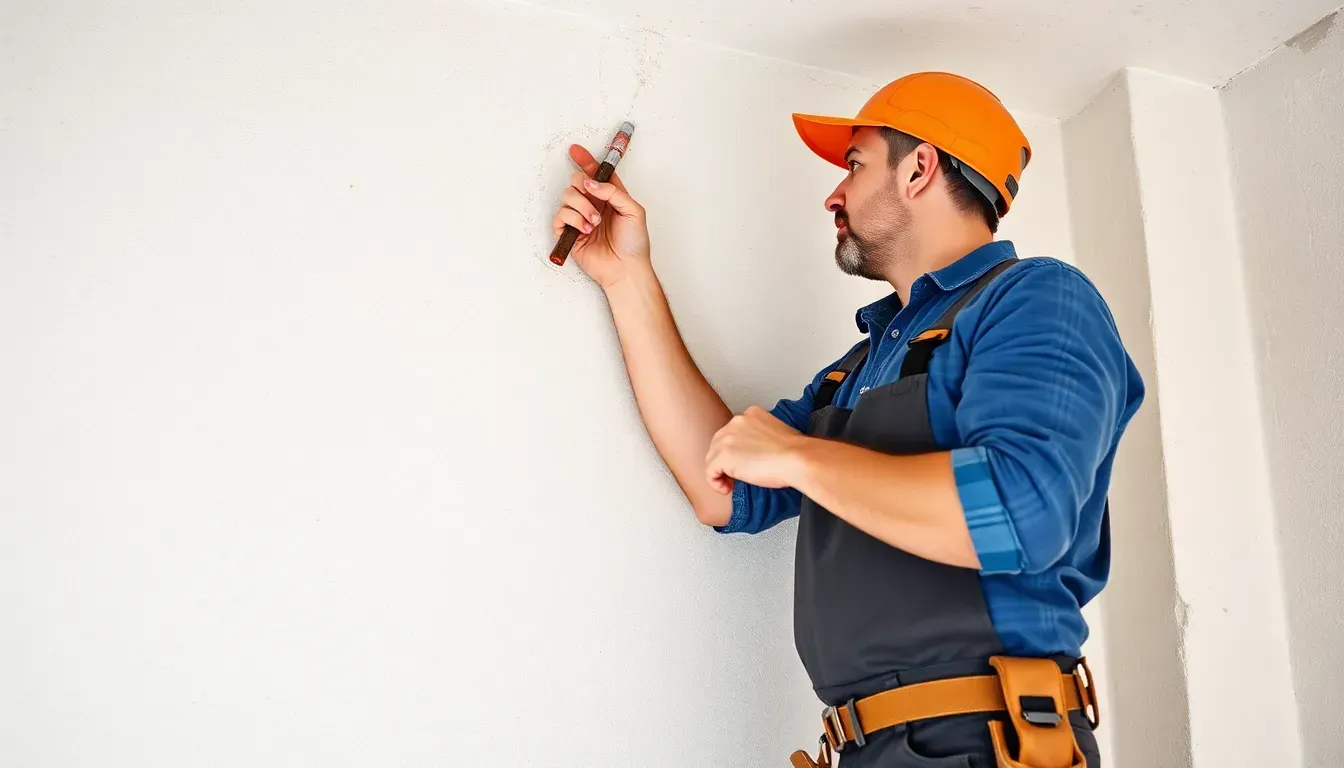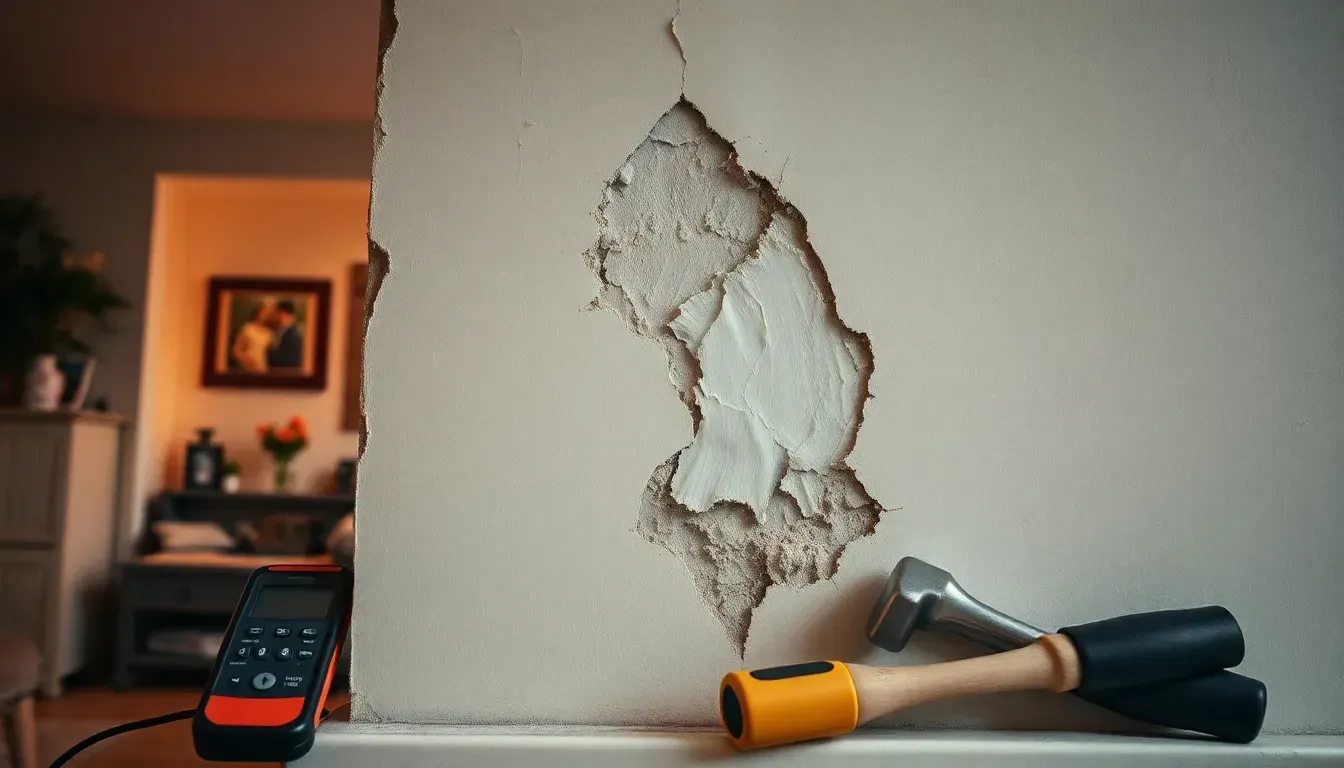Negotiation 101: Securing Repairs or Credits from Sellers
Negotiating repairs or credits with the home seller is a crucial step in the home buying process. Here's a quick overview on how to handle this:
- Conduct a thorough home inspection to identify any necessary repairs.
- Decide whether to request repairs, ask for a credit at closing, or negotiate a price reduction.
- Utilize the inspection report to support your negotiation points.
- Successful negotiation focuses on identifying solutions that satisfy both the buyer's and seller's interests.
Deciding whether to ask for repairs, credits, or a price reduction can significantly impact reaching a mutually beneficial deal. Once the seller accepts your offer, the next step is usually the home inspection period. It's during this time that you get the chance to uncover any issues with the property and use that information strategically to negotiate with the seller.
Home inspections provide a comprehensive understanding of the property's condition, beyond merely listing problems. They give buyers the chance to truly understand the condition of their future home. This understanding is key because it directly informs your negotiation points with the seller.
Negotiations can be intimidating. However, they provide buyers with valuable opportunities to ensure they're making a smart investment. Knowing what to address and how can lead to saving thousands on your final purchase.
Understanding Home Inspections
Home inspections are a vital part of buying a home. They help you understand the property's condition and uncover potential issues. This knowledge is crucial for negotiating repairs or credits with the home seller.
Inspection Report
The inspection report is your roadmap. It details everything the inspector finds, from minor cosmetic issues to major structural problems. This report is your tool for negotiation. It helps you decide what repairs to request or whether to ask for credits or a price reduction.
Structural Issues
Structural issues are a big deal. They can include foundation cracks, roof leaks, and other major problems. These issues can be costly to fix and may affect the home's value and safety.
Example: Imagine finding a cracked foundation in your dream home. This is a serious issue that requires immediate attention. You can use this information to negotiate a significant repair credit or ask the seller to fix it before you buy.
Safety Violations
Safety violations are critical to address. They can include faulty wiring, plumbing leaks, or even mold. These issues pose health and safety risks and should be prioritized in negotiations.
Tip: Always prioritize safety. If the inspection report reveals any safety violations, these should be at the top of your negotiation list. Ask the seller to address these issues or provide a credit to cover repair costs.
Understanding the inspection report, recognizing structural issues, and identifying safety violations are essential steps in the home buying process. This knowledge empowers you to negotiate effectively and ensures your future home is safe and sound.
Negotiating Repairs or Credits with the Home Seller
Repair credits and seller concessions are key strategies in real estate negotiations. They offer flexibility when dealing with issues found during a home inspection. Instead of fixing problems themselves, sellers may offer financial credits to buyers. This can make the transaction smoother and quicker.
Understanding Repair Credits
Repair credits are financial concessions given at closing. They cover specific repair costs without the seller having to manage the repairs. For instance, if a home inspection reveals a leaking roof, the seller might offer a $5,000 credit for repairs instead of fixing it.
Benefits of Repair Credits:
- Simplifies Transactions: Sellers avoid repair hassles, and buyers manage repairs to their liking.
- Buyer Control: Buyers choose contractors and materials, ensuring quality work.
- Tax Advantages: Sellers might benefit from reduced tax basis due to lower sale prices.
Seller Concessions
Seller concessions are similar to repair credits but cover a broader range of costs, like closing fees. They can be a powerful negotiating tool, especially if buyers face budget constraints.
Example: A buyer might request a concession to cover closing costs, allowing them to allocate funds for immediate repairs or upgrades.
Repair Costs and Negotiation
Understanding repair costs is crucial for effective negotiation. Buyers should gather estimates for necessary repairs and use these figures to negotiate credits or concessions.
Tips for Negotiating Repair Costs:
- Prioritize Major Issues: Focus on costly or safety-related repairs.
- Back Up Requests: Provide estimates or contractor quotes to support your requests.
- Be Flexible: Sometimes a mix of credits and price reductions works best.
Negotiating repairs or credits with the home seller can save you time and money. It also gives you control over how repairs are handled, ensuring the work meets your standards.
Strategies for Successful Negotiation
Prioritize Key Issues
When negotiating repairs or credits with the home seller, it's crucial to pick your battles wisely. Not every issue found during a home inspection warrants a confrontation. Focus on significant problems—like structural issues or safety violations—that could affect the home's value or your safety. Minor cosmetic issues, such as chipped paint or a loose doorknob, are often not worth addressing.
Back Up Requests
Once you've identified the critical issues, the next step is to back up your requests with solid evidence. Use your home inspection report to highlight specific problems, and if possible, gather estimates from contractors to show the potential repair costs. This makes your requests more credible and justifiable.
For example, telling a seller that a porch feels shaky is less persuasive than showing them a report detailing the porch's structural damage, complete with repair estimates. Providing this level of detail can be the difference between a successful negotiation and a stalemate.
Repair Addendum
If you've decided to request repairs, your real estate agent will draft a repair addendum. This document outlines the specific repairs you're asking the seller to address before closing. It should be precise and clear to prevent any misunderstandings.
Here are some tips for crafting an effective repair addendum:
- Be Specific: Clearly state what needs to be fixed and how. For example, "replace leaking water heater" is better than "fix plumbing issues."
- Include Deadlines: Specify when the repairs should be completed to keep the process on track.
- Allow Flexibility: Sometimes, sellers may prefer offering a credit instead of handling repairs themselves. Be open to such alternatives if they meet your needs.
Focusing on key issues, supporting your requests with evidence, and using a detailed repair addendum can help you navigate the negotiation process effectively. This strategic approach not only helps in securing the necessary repairs or credits but also ensures a smoother path to homeownership.
Common Repairs and Credits
When negotiating repairs or credits with the home seller, understanding the most common issues can help you prioritize your requests. Let's explore four typical areas: water damage, electrical issues, plumbing problems, and roof repairs.
Water Damage
Water damage is a serious concern that can lead to mold and structural issues. Sellers are often required to address any water penetration problems, like a wet basement or moldy walls.
Key Points:
- Evidence is crucial. Use inspection reports to highlight water damage.
- Request repair credits if the cost is substantial, which allows you to choose a preferred contractor for repairs.
Electrical Issues
Older homes might have outdated or unsafe electrical systems. Ungrounded wiring or improperly wired panels are common concerns. These can pose safety risks and may need upgrades to meet current codes.
Key Points:
- Focus on safety. Ensure all electrical systems are safe and up to code.
- Consider repair credits for extensive rewiring, as costs can add up quickly.
Plumbing Problems
Plumbing issues, such as leaking pipes or outdated systems, can lead to water damage and high repair costs. Replacing galvanized pipes or fixing sewer system problems are common requests.
Key Points:
- Prioritize urgent fixes, like leaks that could cause further damage.
- Ask for credits if the plumbing system needs significant upgrades, giving you control over the repair process.
Roof Repairs
Roof problems, from missing shingles to major leaks, can be costly. Addressing these issues is vital for protecting your home from the elements.
Key Points:
- Document issues with photos and inspection details.
- Negotiate for credits if the seller is unwilling to handle repairs, allowing you to manage the quality of work.
By focusing on these common areas and using inspection findings to support your requests, you can effectively negotiate the necessary repairs or credits with the seller. This approach ensures your new home is safe and sound, setting you up for a successful transition into homeownership.
Frequently Asked Questions about Negotiating Repairs or Credits
How to negotiate repairs with a seller?
When negotiating repairs, inspection findings are your best friend. Use them to clearly show the problems that need fixing. Focus on major issues that affect safety or value, like structural defects or electrical hazards.
Steps to Negotiate Repairs:
- Prioritize Repairs: Concentrate on significant concerns, such as plumbing leaks or roof damage. These are often the most costly and urgent.
- Back Up Your Requests: Provide estimates from contractors to show the repair costs. This helps justify your requests to the seller.
- Stay Courteous: Approach the negotiation politely. A friendly manner can go a long way in reaching a mutual agreement.
How do seller credits for repairs work?
Repair credits are a flexible way to handle repairs without delaying the sale. Instead of fixing issues themselves, sellers offer a credit to the buyer at closing. This reduces the buyer’s closing costs.
Benefits of Repair Credits:
- Control: Buyers can choose their contractors and materials, ensuring quality work.
- Flexibility: Funds can be used for immediate repairs or saved for future maintenance.
- Tax Advantages: For sellers, offering a credit might provide tax benefits by reducing the property's tax basis.
What if the seller is not willing to negotiate?
Sometimes, a seller might refuse to negotiate on repairs. If this happens, consider the following:
- Market Conditions: In a seller's market, they may be less willing to make concessions. In a buyer’s market, you might have more leverage.
- Buyer Protection: Ensure your purchase agreement includes a home inspection contingency. This allows you to walk away if significant issues are found.
- Alternative Solutions: If the seller won't budge, ask for a price reduction instead. This can lower your mortgage amount, offering long-term savings.
By learning these strategies and approaching negotiations with a clear plan, you can guide the process smoothly, even if the seller is hesitant at first.
Conclusion
When it comes to home inspections and negotiations, Accurate Home and Commercial Services stands out as a reliable partner in the Greater Houston area. Their dedication to customer satisfaction and property safety ensures that both buyers and sellers have peace of mind throughout the process.
Why Choose Accurate Home and Commercial Services?
- Extensive Experience: With years of expertise, their team knows what to look for in a home inspection, identifying issues that could impact your investment.
- Attention to Detail: They provide thorough inspections, giving you a complete picture of the property's condition.
- Customer-Centric Approach: They prioritize your needs, offering clear reports and actionable advice to help you make informed decisions.
By working with Accurate Home and Commercial Services, you're not just getting an inspection—you're gaining a partner committed to ensuring your property is safe and sound. Whether you're a buyer seeking to negotiate repairs or a seller wanting to present your home in the best light, their comprehensive services are designed to meet your needs.
For more information on their home inspection services, visit their Home Inspections page. Let Accurate Home and Commercial Services guide you through the inspection process with confidence and clarity, ensuring a smooth and successful transaction.











